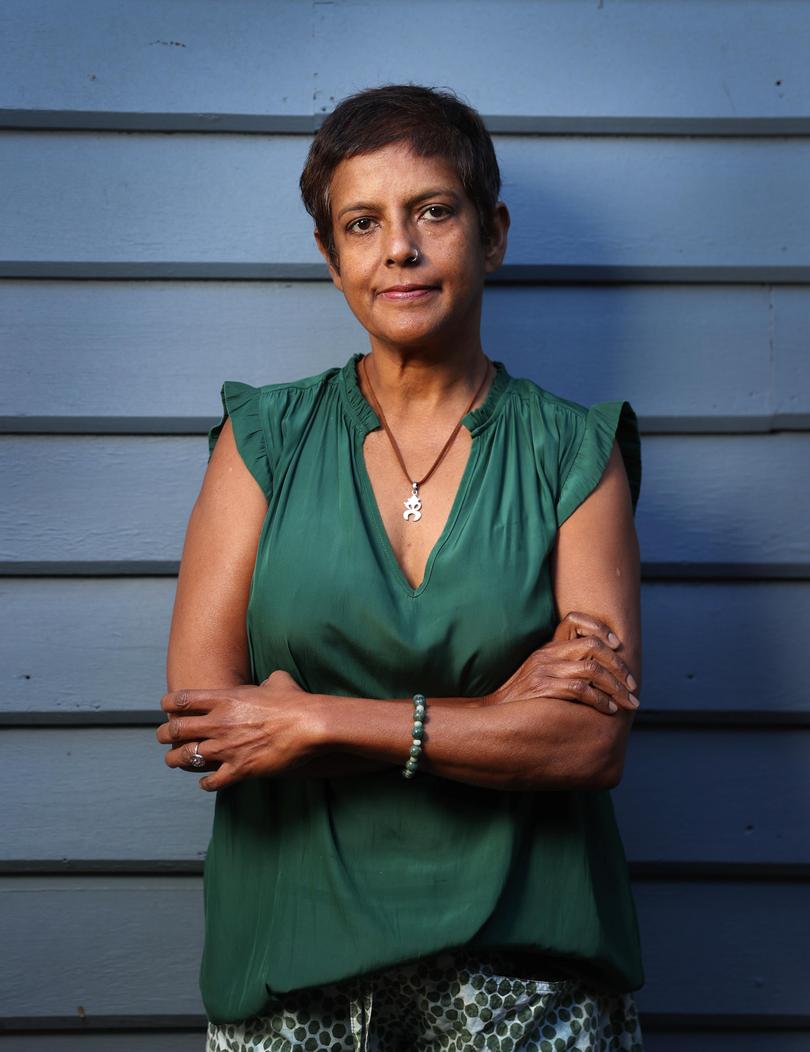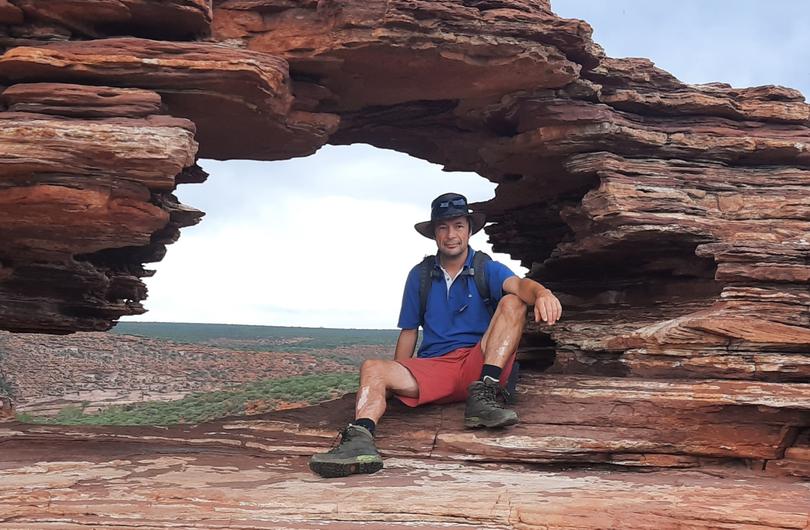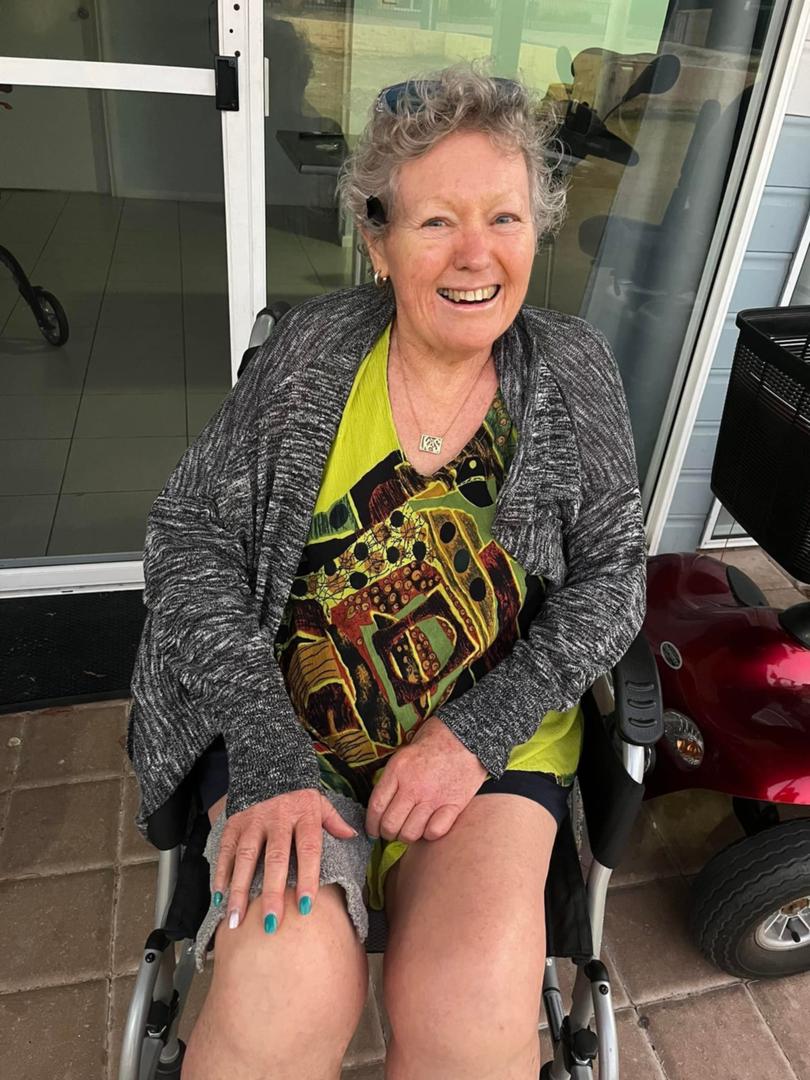Voluntary assisted dying doctor Bhawani O’Brien says new laws allow terminally ill people to pass ‘peacefully’

Suffering with terminal cancer, the last thing Pieter Jagtenberg’s family wanted was for him to live in constant pain.
It was far from an easy decision, but he and his wife made a voluntary assisted dying application so he could pass away on his own terms.
Pieter died in March, with his wife Tina and their three children by his side.
Sign up to The Nightly's newsletters.
Get the first look at the digital newspaper, curated daily stories and breaking headlines delivered to your inbox.
By continuing you agree to our Terms and Privacy Policy.But their struggle to get VAD approval highlight the contentious nature of the laws since they were enacted in late 2019 and the difficulties faced by some whose life-limiting conditions leave them with no choice over what is happening to their bodies.
As conditions such as motor neurone disease have taken away their functions – or as incurable cancers mark the beginning of the end — West Australians living with these realities are able to access VAD.
To March this year, 669 people have used that option.
Dr Bhawani O’Brien has helped more than 100 people in their dying moments.
“It’s such a calm, peaceful death,” Dr O’Brien told The Sunday Times. “The word I hear most is relief — and it’s universal.”
She spends three days each week visiting patients and their loved ones in their homes, sometimes travelling to far corners of the State due to a lack of trained providers, to assess their eligibility for the program.
While it might seem an unfathomable career path for some, it’s a job the long-time GP felt called to after the death of her own father.
“It was the COVID years, and it was a really tough time in medicine,” Dr O’Brien said. “I was fairly burnt out.
“Then my father, who was the key figure in my life ... He was dying (and) I couldn’t go home.”

An anaesthetist himself, Dr O’Brien’s father spent his working life helping to ease the pain of others.
But in a cruel twist of fate, she said his wish to spend his last days at the family home in Malaysia meant he would die without any form of pain relief.
“For me, that was the worst part,” she said.
“Speaking to him on the phone the night before, realising that he was suffering, and not being able to do anything about it.”
The experience gave Dr O’Brien an insight into the fears of the terminally ill patients she meets.
“I had a patient say to me, ‘I’m not scared about dying, but I am scared about suffering, so this is why I want VAD’,” she said.
“Patients will say, ‘I don’t want my child to see me like this’, ‘I don’t want my loved ones struggling’.
“This job means that people don’t have to do that.
“They end their lives having had a morning with their family maybe, or people lying in bed with their dogs, smelling the smells they want to, maybe having a taste of the food that they want.”
Since 2019, all Australian States have moved to legalise VAD, with the Northern Territory and the ACT still working towards legislating it.
It is seen as a “legitimate choice” in end-of-life care, according to Voluntary Assisted Dying Board chair Dr Scott Blackwell, who said the program was supported by “caring and diligent people” willing to step up and provide a safe, quality service.
One of the early architects of the legislation, Health Minister Amber-Jade Sanderson, said uptake had been far greater than initially expected.
“Demand is strong,” she said. “The implementation has been credit to the clinicians.
“It’s become something that is not openly chatted about or discussed, but it’s just going to become part of the fabric and the spectrum of end-of-life care.”
An independent panel is undertaking a statutory review of the VAD program, and while previous reports said those findings would be released in early 2024, a spokeswoman for the Ms Sanderson said findings were now expected by the end of the year.
Ms Sanderson said there was “no appetite” for major legislative changes to the current Act, but changes were needed in Federal legislation that was hampering States from using Telehealth to reach rural Australians wishing to access VAD.
“The current Telecommunications Act prevents any kind of telecommunications being used for what they term as ‘inciting suicide’,” she said.
“We have a provision in our Act which says voluntary assisted dying is not suicide.
“That is as much as we can do as a State to protect clinicians from egregious prosecutions.
“We use telehealth every single day in Western Australian health care, and so to limit what is legal … to pen and paper essentially, is just … out of step with how health care is delivered today.”
The issue was highlighted last year when Victorian GP Dr Nicholas Carr asked the Federal Court to determine whether VAD laws equated to “suicide coercion”.
Federal Court Justice Wendy Abraham ruled the definition of assisted dying was consistent with suicide in that they “simply bear their ordinary and natural meaning, the intentional taking of one’s own life, and the act of doing so”.
In WA, two separate practitioners are required to independently assess VAD applications from those who meet the criteria, including being an “ordinary” resident of the state for the past 12 months.
To date, just over 100 WA medical and nurse practitioners have undertaken approved VAD training. The bulk are based in the Perth metro area, while about 30 per cent are regional.
However, Dr O’Brien said many medical professionals still didn’t fully understand the process, leading to some doctors telling patients they were unable to help.
“That then leads to the patient not being able to access (VAD) until sometimes they get to palliative care,” she said.
“Very sadly a lot of patients are missing the boat because their first request has been sort of ignored or denied, but nothing more has been done about it.
“They haven’t been led to the right spot and by the time they actually ask for it, they are too late.
“Medical practitioners are legally obliged to give the patient further information regarding the process and they are legally obliged to let the board know they have declined a request for that.
“It seems many doctors don’t realise this.”
Under the Voluntary Assisted Dying Act 2019, medical practitioners who refuse a request by reason of “conscientious objection” must immediately inform patients of the refusal and give them the approved information.
Another hurdle for access was highlighted in the WA VAD Board’s 2022-2023 annual report, which showed it was aware of instances where organisations had obstructed applicants.
For Pieter Jagtenberg — who was diagnosed with pancreatic cancer last year — those obstructions came from the hospital where he was being treated.
“It’s a Catholic hospital, and I get it they don’t like VAD, but at the same time the suffering was inhumane,” Pieter’s wife Tina Jagtenberg-Koomen said about his time at St John of God Subiaco.
“I thought religion was about humanity, and that I found very disappointing.”
Due to the hospital’s protocols, Tina said she was forced to wheel her husband outside of the hospital grounds altogether, in order to have a meeting in a carpark over the road so he could progress his VAD application.
“We were lucky the weather was good,” she said. “But that’s something that really needs to be changed.”
Due to patient confidentiality, St John of God Health Care Group chief executive Bryan Pyne would not comment on Pieter’s case, however, he said St John of God Health Care hospitals respected the wishes of patients to explore the option of VAD.
“Our commitment is to provide high-quality palliative care, and ensure we do not impede a person from seeking information about voluntary assisted dying, respecting their legal right to do so,” he said.
“We are focused on ensuring all those in our hospitals or services receive excellent and compassionate care, particularly at times of significant vulnerability such as those approaching their end of life, with palliative and support care services.”
But in Australia, Catholic Health Australia member hospitals such as St John of God, do not provide VAD.
A spokesman said while services would “never block” or impede a person’s access, when it comes to end-of-life care their hospitals chose palliative care.

Pieter was granted VAD approval after a two-week assessment process earlier this year. He died in March, with his wife and three children alongside him.
Despite concerns about ongoing funding for the service raised in the WA VAD Board’s annual review, the State Government allocated $9.5 million to run the service throughout the next financial year, and Ms Sanderson said this was secure under the Cook Government.
While Dr O’Brien described the work as being extremely fulfilling she said she was frustrated at times with the limitations put on sharing information about the end-of-life option.
“I work as a GP… But I’m not allowed to put leaflets about this anywhere,” she said.
“We have leaflets about everything else, but we ourselves as a health department (and) health professionals are making it a dirty word when it shouldn’t be.
“This is not us going out there and going, ‘Oh, you fancy dying” Yeah, we’ll help you’.”
When asked if she felt the weight of such a job on her shoulders, Dr O’Brien said it had actually reinvigorated her medical career.
“It’s not heavy at all,” she said.
“This (role) came to me by chance, you know, and I was really struggling with just losing my mojo for medicine.
“It’s a huge privilege to be able to do this.”
KAROLYN’S STORY
Karolyn Sumton might not be able to speak anymore, but her light blue eyes convey so much.
Whether it’s the look of warning she gives her grandchildren when they’re in trouble, or the feeling of peace you see so clearly in her gaze when the topic of her death comes up.
After 70 glorious years, four beautiful children and seven (almost eight) grandkids, Karolyn has decided that her time will come to an end surrounded by her loved ones, in her garden, at her home nestled in the Perth hills.
It wasn’t meant to be this way, but when motor neurone disease began to ravage the body of the once independent and organised emergency call centre worker, she knew she wanted to control what she could.
“I don’t want the last memories of me being a vegetable,” said the voice from Karolyn’s speech aid.
It’s an app on her tablet she uses to type in her thoughts, which are then read aloud by a computer-generated voice at the tap of her fingertip.
No secret to those who know her, Karolyn has a fierce sense of humour. She points to the common phrases that have been programmed into the app: “F..k off” one reads.
She was diagnosed with MND in August 2022.

She was getting ready to retire after a busy working life that included taking a mammoth 70,000 calls as an emergency phone operator with the WA Police.
But when her speech began to slur, it was the first indicator that something was wrong.
With a cup of coffee in her hand at the family table, Karolyn’s 31-year-old daughter Lucy Holmes said her mum had always been adamant about her wishes.
“Mum’s always said she doesn’t want to ever get to that stage where everything’s fine in her head, but her body’s just not,” she said. “So we’ve all been at terms with that for years.”
Eldest daughter Pam Sumpton agreed.
“Mum always said to us if anything ever happened… make sure that machine is turned off,” she said.
“If we can’t be guaranteed something decent, let us go.
“Mum has spent our entire life being a control freak, down to the point of spreadsheets to the last two cents of where everything has gone.
“So it only makes sense that if you can control — in mum’s situation — the leaving, then she would.”
The VAD process for Karolyn started in January this year when she made her first application.
There are 10 steps in the process from start to finish, including meeting with two medical practitioners who each independently assessed her eligibility.
During the final assessments which are held to ensure a person like Karolyn still has decision-making capacity, the coordinating practitioner writes a prescription.
Unlike most medicines, the prescription is not given to patients.
Karolyn’s husband Peter Hug, who is “completely supportive” of his wife’s decision, said everyone the family had encountered throughout the process had been fantastic.
“There was not any hint of ‘we recommend you do this’, or ‘we feel you should do that’,” he said, “It is entirely a neutral process.”
With the script approved, Karolyn can now choose to use it whenever she feels ready.
Pam said that choice was completely in her mother’s hands.
“There’s never been any pressure,” she said.
“The script is there for at any point you wish ... And the script will sit there, and if you pass naturally beforehand, the script just gets destroyed.”
As with all things in her life, Karolyn has a plan for her death.
She will be surrounded by her loved ones at the home she has lived in for nearly 30 years.
“I am at peace because by the time I use it I will be tired of living in my body,” she added.
“(It’s) not a celebration of death, but a celebration of a life lived.”
When asked how she felt about her choice, Karolyn’s response was simple.
“Wonderful,” she said.
